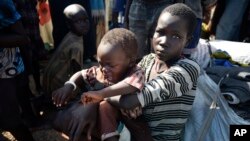Four years ago this month, South Sudan celebrated its independence with much jubilation and great hope that a split from the North would finally put an end to decades of civil war.
That, unfortunately, was not to be. The relative peace that followed lasted all of 18 months. In December 2013, a political schism evolved into widespread conflict that, in part, devolved along ethnic lines.
The conflict is remarkable in its brutality against civilians. This has been stated in a number of reports from NGOs and the United Nations that take note of human rights violations and abuses committed by both sides. They range from ethnically motivated murders to gang rapes and the mass destruction and looting of civilian property. Thousands have been killed, 2.4 million have been displaced and almost 4.6 million are in need of humanitarian aid.
On June 27th, the United States urged the United Nations Security Council to blacklist six rival commanders from South Sudan for threatening that country’s peace and stability. On the Government side, they are Major General Marial Chanuong Yol Mangok, Lieutenant General Gabriel Jok Riak, and Major General Santino Deng Wol. Rebel leaders to be sanctioned are Major Generals Simon Gatwech Dual, James Koang Chuol, and Peter Gadet. In a July 1 vote, the Security Council agreed. All six had previously been sanctioned by our Treasury Department regarding their financial transactions.
“South Sudan’s political leadership has squandered the international goodwill that accompanied its independence and pursued political and economic self-interest that has produced only violence, displacement and suffering for the South Sudanese people,” said U.S. Permanent Representative to the United Nations Samantha Power. “Political and military leaders on all sides of this conflict must put aside their self-serving ambitions, end the fighting, and engage in negotiations to establish a transitional government.”














